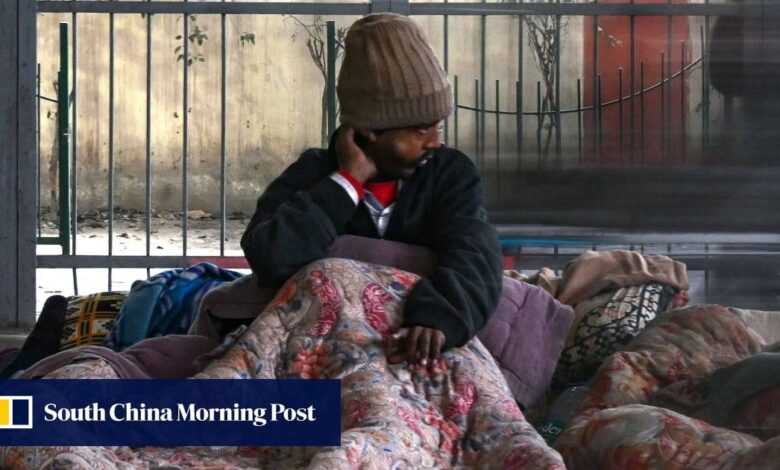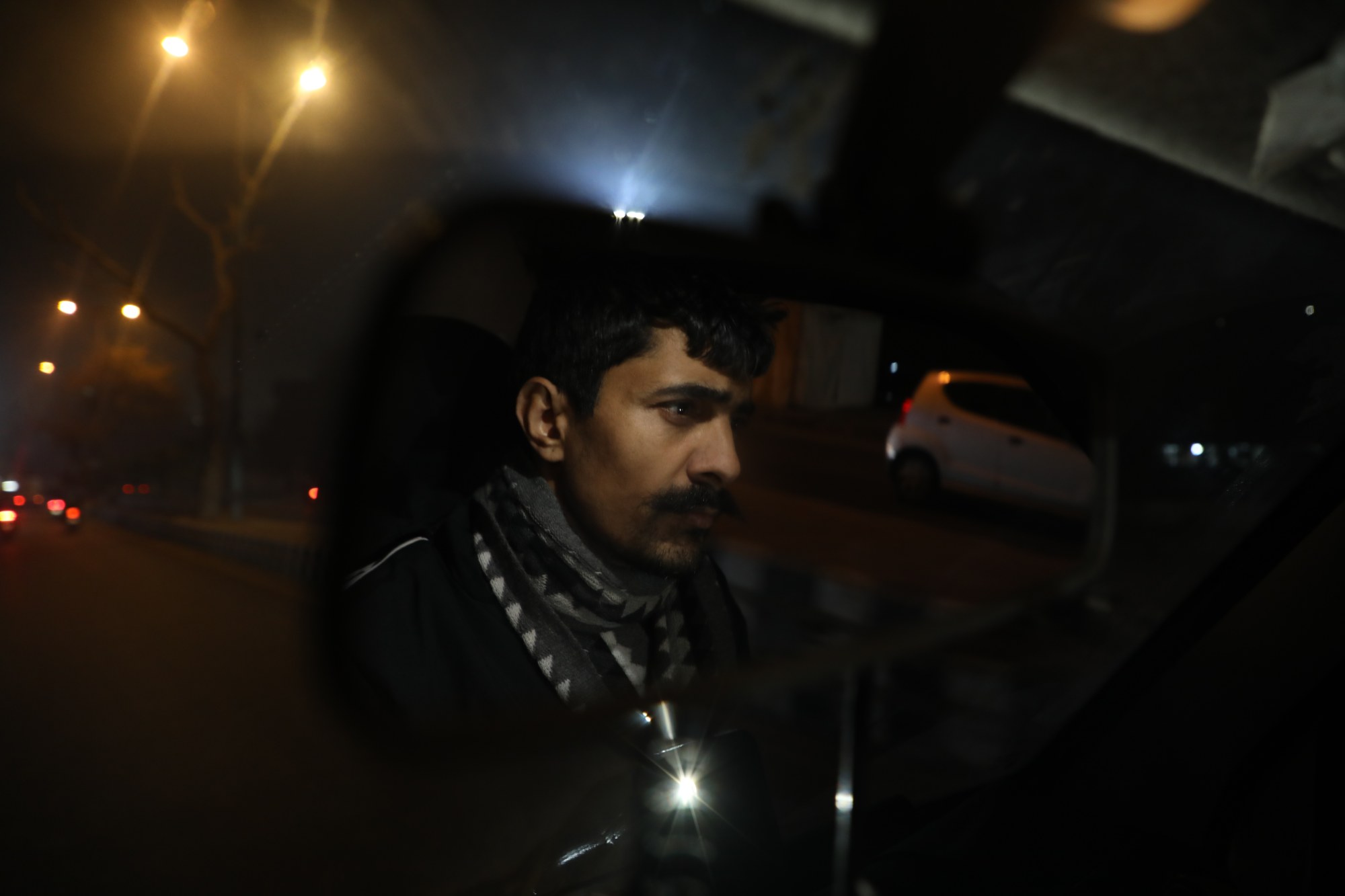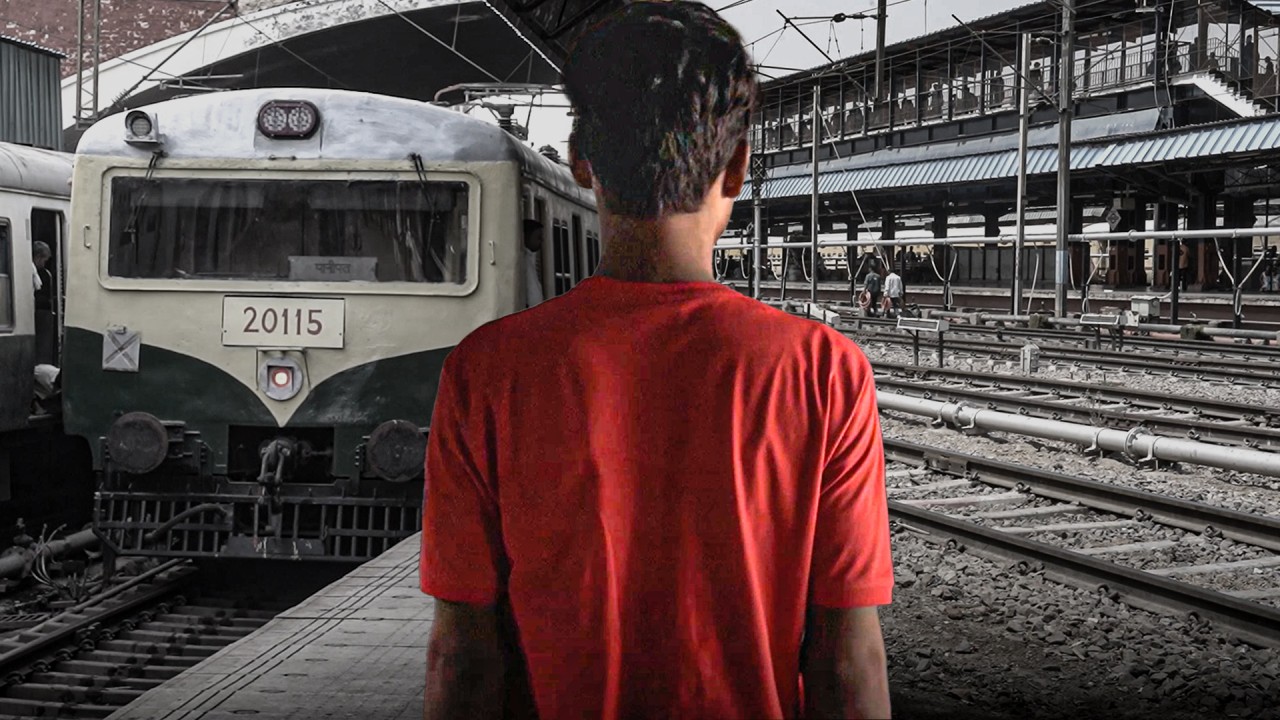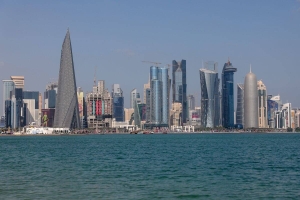Winter blues: meet the Indian man on a mission to save New Delhi’s homeless from the bitter cold

[ad_1]
As for the dead, Sharma said the bodies were handed over to local police stations, where the last rites are performed. Such rites are done “according to the religion of the people after ascertaining their faith”, he added.
He said his team had distributed about 2,000 blankets this winter, as well as providing first aid and transport to hospitals for those requiring urgent treatment.
Homeless in Seoul: why many struggle to leave the streets
Homeless in Seoul: why many struggle to leave the streets
“Each night, we drive around the parts of the capital city to rescue people living on the roadside to protect them from Delhi’s chilly cold. Besides collecting dead bodies, we have shifted several dozen people whose condition was critical to hospitals,” Sharma told This Week in Asia while standing in the courtyard of a homeless shelter in Old Delhi.

The Centre for Holistic Development (CHD), an organisation that works with the homeless community, says nearly 800 homeless have died in Delhi between November 1 and January 23. There were 962 homeless deaths over the previous winter.
Sharma warned that “amid the chilling cold, we may see more casualties in the coming days if the situation remains like this”.
The number of homeless deaths in the city even became a political issue in the Delhi Legislative Assembly last month. The opposition leader from the Bharatiya Janata Party, Ramvir Singh Bidhuri, accused Delhi’s ruling Aam Aadmi Party of “not providing enough facilities to prevent the death toll”.
Within hours of his arrival, he was robbed of almost all of his possessions, everything except the clothes he was wearing, and forced into a life of homelessness.

Too stubborn to go back home or ask for help from his family, he slept on footpaths for months while occasionally working as a day labourer. After two years, he found a space to live in one of the shelter homes run by the Delhi Urban Shelter Improvement Board (DUSIB).
Formed by the government in 2010, DUSIB is tasked with helping the homeless, as well as people living in shanties and squatter settlements across the capital. According to official data, DUSIB runs 197 shelter homes with an intake capacity of 17,321. But that is only a fraction of the 150,000 to 200,000 homeless people that civil society groups estimate are living in Delhi.
Sharma says living in the shelter changed his perspective on life. He eventually found work with a non-profit organisation, the Society for Promotion of Youth and Masses (SPYM), contracted by the government to help run the homeless shelters. Some of the homeless people he met while working there turned their lives around and eventually joined him in his mission to care for those living on the streets.

Among them is Abhishek Vajpayee, a 35-year-old native of Kanpur, in the northern state of Uttar Pradesh.
“I was working as area sales manager in [telecoms company] Airtel with an annual package of 6.01 lakhs [US$7,200] but, due to some reasons, I turned alcoholic and lost everything,” Vajpayee said.
He recalls how he was sleeping on a footpath one night when Sharma rescued him. Vajpayee says Sharma helped him overcome his alcoholism and embark on a fresh start, which is why he now follows Sharma – whom he calls Vicky bhai, meaning big brother Vicky – on his nightly rounds to help the homeless.
“I never knew what it meant to be homeless, but after experiencing it myself, and being lucky enough to come out from that life, I decided to dedicate my life in service of the homeless rather than going back to a corporate job,” Vajpayee said.
Another of Sharma’s volunteers is Sumit Kumar, He was 27 and working at a roadside dhaba (food stall), earning around 2,500 rupees (US$30) a month and sleeping on a footpath, when Sharma took him under his wing, giving him a new lease on life.
“Vicky bhai brought me here [to the shelter home] and provided me with food and clothes. Since then, I am with him only. He is my everything now,” said Kumar who, like his mentor, came to the capital after running away from his home in Uttar Pradesh’s Agra town.

Rounding out Sharma’s team are sisters Madhu and Puja Mandal, who came with their family from Bihar – one of the poorest states of India – to Delhi in search of a better future.
After her elder brother passed away, responsibility for taking care of the family – her parents and three siblings – fell on Madhu’s young shoulders.
“My father doesn’t work. He is an alcoholic. So, it was on me to look after my family,” said Madhu, who is currently in college.
It was while she was struggling with that responsibility that Sharma, a family friend, introduced her to his work.
Madhu, 23, says she “developed an interest” in Sharma’s work after accompanying him on his nightly rounds. She later accepted a job in the organisation with which he works. Puja, 19, eventually decided to follow in her sister’s footsteps.
“[Puja] accompanies us during our night drives in the city. This job has not only made us financially secure but also changed my life in terms of helping people who have nowhere to turn,” Madhu said.
Sharma and his team currently work for an NGO called the Sofia Educational and Welfare Society that pays them to help administer homeless shelters. However, distributing blankets and collecting dead bodies are “voluntary work they do” in addition to their day job.
He founded the Homeless Empowerment Trust in 2020 – a volunteer organisation that works exclusively with homeless people living on the streets. The group now has 127 volunteers, including the four members of Sharma’s patrolling team.
“All of us are contributing some money from our salaries every month to buy blankets. We even bought the van with our own money. It is completely voluntary work we do, apart from our daily routine at the shelter homes,” Sharma said.
“Not enough was being done for the people who cannot find space in shelters and spend nights on the roadsides. Our organisation is focused on such homeless people.”

It is unclear how much longer they will be able to sustain their efforts, however. Sharma and the others say they have not been paid for several months after SPYM’s contract to maintain the shelters was terminated in August last year. Sofia Educational and Welfare Society, which took over the contract in January, has said it is looking into the matter.
“It has already been five months without salary, but somehow we are still contributing from our [savings] to run the roadside work. However, losing our jobs will put an end to all our hard work,” Sharma said.
But for now, the team are persevering and continuing with their mission to help those less fortunate than themselves, who live lives like they once did.
[ad_2]
Source link






